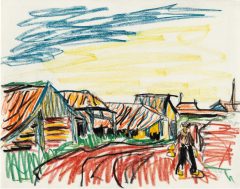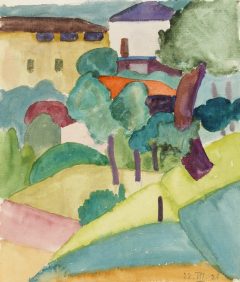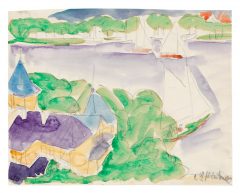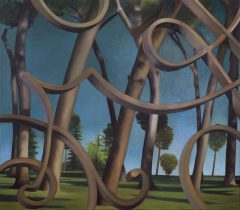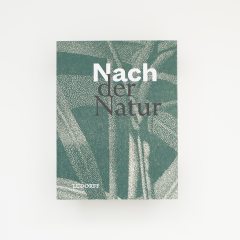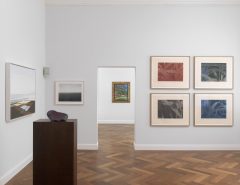Katharina Grosse
Rock
2005
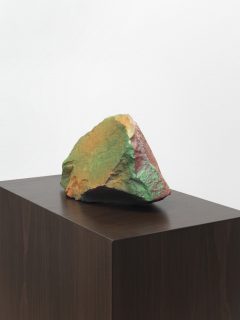
Acrylic on Carrara marble
ca. 20 × 10 × 14 cm | 7 3/4 × 4 × 5 1/2 in
Signed and "XXII/XXV" numbered on the accompanying certificate
Edition of 55 Arabic + XXV Roman numbered copies with unique character; Edition for Parkett no. 74, Zurich
Another copy of this edition is part of the collection of the Museum of Modern Art, New York
Price includes German VAT. Shipping costs are not included. All prices are subject to change and availability. Change region and currency
The artist’s studio; Parkett Verlag Zurich; Private Collection Zurich
- Galerie Ludorff, "Nach der Natur", Dusseldorf 2017
- Galerie Ludorff, "Nach der Natur", Dusseldorf 2017, p. 30-31
- Parkett 74 (2995), p. 149 + 210
Using a paint pistol instead of a brush, Katharina creates large objects, images and spaces that are determined by the direct and sensual effect of colour. The first sprayed works were created at the end of the 1990s and at the same time sketch the crossing of the picture surface into the architectural space.
I find that a picture can land anywhere, on a tree or a piece of stone in the street. A picture can be anywhere, it is so insanely free and unbound by the place, and I am fascinated to try out how impassable the surface can be on which painting can take place. 1)
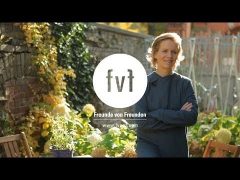
In this way, the surfaces of walls, landscapes and objects become the painting ground - three-dimensionality becomes a surface. Chance plays a major role during the creation process. Bright and glaring colour particles are atomised in the air and settle on the painting surface without the artist directing this process. The intensely coloured works bear witness to the influence of American colour field painting, abstract expressionism, land art and the works of her teacher Gotthard Graubner, with whom she studied at the Düsseldorf Art Academy.
The artist, who lives in Berlin and now also teaches at the Kunstakademie Düsseldorf, dissolves the boundaries of conventional painting and questions the possibilities of the genre that was so often declared dead in the last century. The roughly hewn block of marble shimmers in a variety of colours depending on the view and incidence of light. Bright orange colour particles are overlaid with delicate and sometimes strong purple tones. Elsewhere, green and blue acrylic colours flow into one another, structured by the edges formed by the stone. The marble from the Carrara quarries in northern Tuscany was already used in sculpture in antiquity. In the Renaissance, Michelangelo helped the "white gold" to achieve worldwide fame. However, Grosse conceals the surface of the marble with her application of colour, thus drawing attention away from the marble surface, which is perceived as being of particularly high quality, to the sculptural qualities of the natural stone in its broken state. Great interest is primarily focused on the effect of colour, including light and shadow on the jagged object. The full-surface application of acrylic paint prompts the viewer to decipher the enigmatic structure of the overlays, the before and behind. The seemingly artificial "Rock" illustrates the changeability of materiality through colour and explores the apparent contrasts between naturalness and artificiality, reality and illusion, painting and sculpture, surface and three-dimensionality.
- Freunde von Freunden, »Katharina Grosse«, Video, Berlin 2014, youtube: https://www.youtube.com/watch?v=8JsPtVXu8gc
